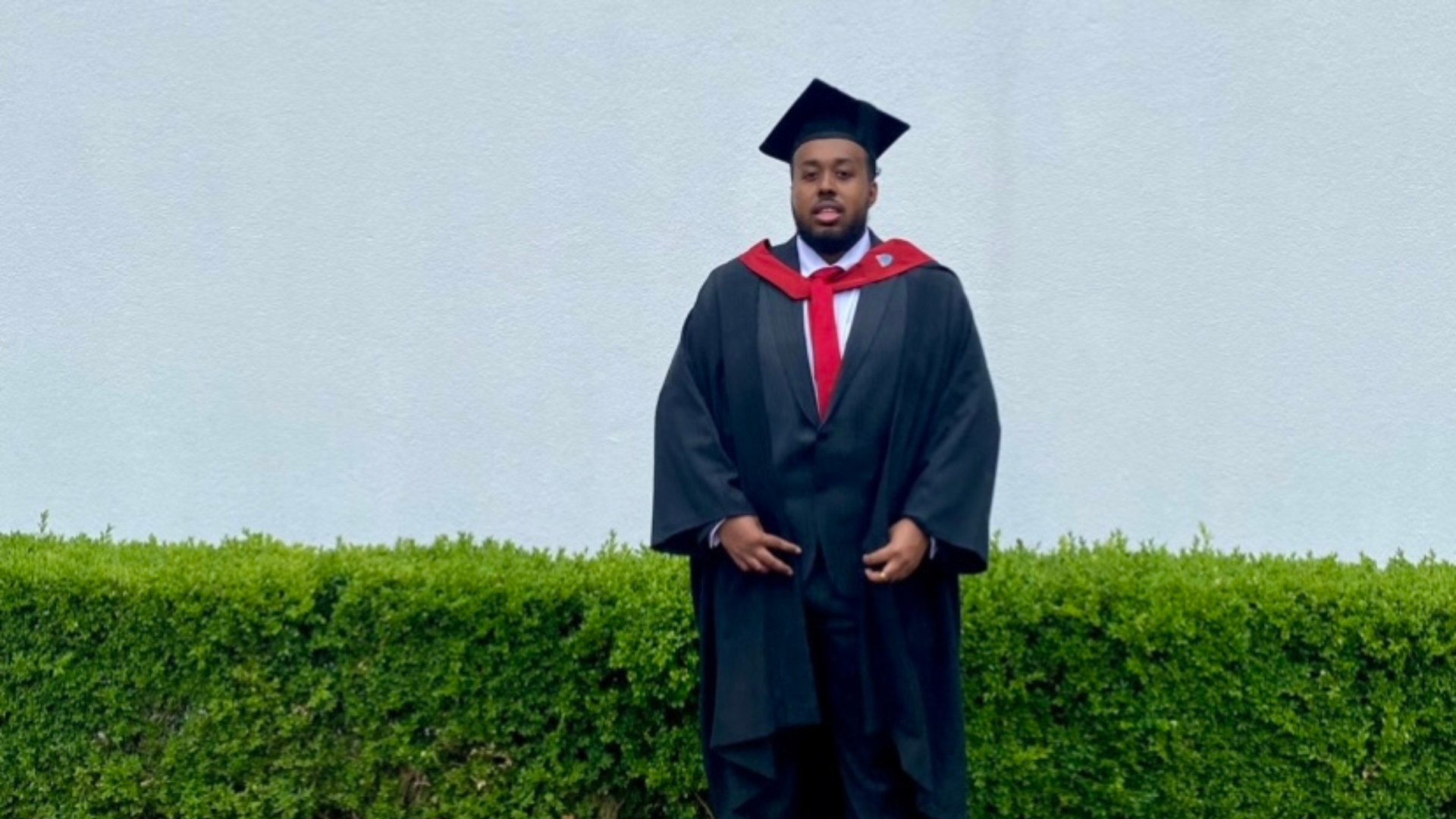
“The exam anxiety didn’t just disappear, I just had a different mindset”.
Laura Sile shares her experience dealing with assessment "failure" and her journey to fully qualified pharmacist.

Abdikarim reflects on his experiences of the trainee foundation placement and, looking back, what tips he would give his trainee-self.
Abdikarim is a newly qualified pharmacist and is currently working as a Relief Pharmacist for Cohens Chemist in the northwest of England. In this trainee story, he reflects on his experiences of the trainee foundation placement and, looking back, what tips he would give his trainee-self.
In my training year, I worked a split placement between a community pharmacy and a GP practice. In the community pharmacy setting some of my tasks included: dispensing medication, giving OTC advise to customers, completing services such as blood pressure monitoring service, flu vaccinations, covid-19 booster vaccinations, NMS service and minor ailment service.
At the GP practice some of my tasks as the trainee pharmacist included: amending patients’ repeat medication after receiving discharge letters from hospitals, medication reviews, audits (e.g. DOACS), and minor ailment queries (all with the supervision of the practice pharmacist).
Prioritise tasks and determine which ones are more important and tackle them first. This often helped me when it came to structuring my revision for the registration assessment. It also helped me when it came to meeting my learning competencies during my time in the community and GP setting. I remember earlier in the training year not knowing where to start with revision, but as soon as I implemented this strategy of prioritising, that feeling of being overwhelmed faded and I felt more on track with my revision. From my experience, breaking down your revision into more manageable chunks is a more effective way to get more work done. This usually prevented me from getting burnt out and helped me stay more concentrated on my studies. It’s important to give yourself breaks as working and studying during the week is not easy. Give yourself time to recharge and do something fun in your free time to maintain productivity.
Surround yourself with supportive people who believe in you too ... to encourage you to keep advancing during the assessment period.
I completely understand that trainees will go through the feeling of ‘imposter syndrome’, questioning whether they are good enough to become a pharmacist. However, I would tackle this by reframing my thoughts and looking back at how far I have come. You have completed four years at university and have achieved this degree (which was not an easy road!) and now you are almost at the destination – which is being a registered pharmacist. In addition, I would also recommend surrounding yourself with supportive people who believe in you too. This will help to encourage you to keep advancing during the assessment period.

Laura Sile shares her experience dealing with assessment "failure" and her journey to fully qualified pharmacist.